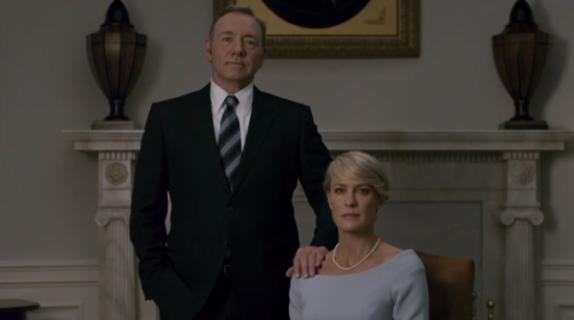House of Cards season three has finally been released (for real this time) and to celebrate its debut, we take a deeper look into how the show gained the success it has so far.
Was it destined to be a hit right from the start?
The folks at Netflix say yes. They did their legwork taking the numbers from David Fincher’s past work, Kevin Spacey films and the British version of House of Cards to determine that it had a very high chance of doing well. So no, it wasn’t just pure luck that people, including Barack Obama, became huge fans from the start, BUT was there more to it than solely big data that contributed to the success?
Of course, having a healthy understanding of the audience is key to the success of any type of content, whether it be a television show or a tweet, but once you get that dedicated audience, how do you keep them coming back? (especially when it comes to a provider like Netflix, where many viewers bang out the season in a day and then have to wait an entire year for the next).
Audiences are increasingly consuming entire seasons over the span of a weekend rather than slowly over a traditional season-long window of time. That’s how Breaking Bad gained such traction late in the game when it finally debuted on the streaming provider. More and more, we are seeing brands (vs. solely network marketers and stars of the show) help keep fans engaged between seasons. Dare we suggest a hat tip to the #CreatedWith movement?
And that, friends, is where brand marketing and social media converge to build brand loyalty.
We saw it in the Quiznos campaign where Game of Thrones meets House of Cards:
And as brand marketers ramped up for this season, even unexpected brands such as Sesame Street hopped on the House of Cards bandwagon:
And then there’s the season-three leak, two weeks before the official release. Show creator, Beau Willimon’s reaction makes us all question if it was a forethought or not, telling Entertainment Weekly: “It would have made us look really cool and Underwoodian if we had orchestrated the whole thing, and who knows? Maybe we did, and we’re pretending we didn’t. But the truth, if you choose to believe it [is that] streaming television shows on the Internet is a new thing, and every season we’re figuring it out as we go. And this was one of the unexpected things that happens when you’re doing something different.”
This is Washington. There’s always a leak. All 13 episodes will launch February 27.
— House of Cards (@HouseofCards) February 11, 2015
Could be a technical f**k up that just happened to continue to benefit the show’s continuous promotional achievements, but was it really? Even Willimon’s reaction to the media seems a little too up to par. Was it a great crisis-management team or a highly strategic marketing one?
So it comes down to the undeniable “click and get” mindset that’s attached to great entertainment brands today, especially when paired up with this newer concept of “leaks.” Wikileaks, Snowden leaks, Sony got hacked and a ton of documents leaked, Queen B leaks new music, movie companies fake leaks to promote new trailers, shoe companies leak new kicks… it’s a leaky world.
Why do we love these leaks? Curiosity killed the cat right? What’s that info that we’re not supposed to have? Why aren’t we supposed to see it?
Humans crave that exclusivity, that early access, and combined with a need to know and share. Consumers who are brand loyal will go to great lengths to find more about what they love before anyone else. They want to start conversations with like-minded friends and (think back to Maslow’s hierarchy of needs) to feel like they belong.
Netflix is no stranger to leaks either. During the launch of Arrested Development’s season four premiere on the site, they dropped a Banana Stand in NYC through a series of leaks on Reddit.

Seamless picked up on this early on, and added its own spin by leaking its own menu for the Bluth’s Banana Stand that sent the initial idea skyrocketing, an injection of #CreatedWith culture sending the reputations of all three brands through the roof.
Now take that past tabloid leaks, and consider when you love something so much that you can’t get enough of it, you’ll go at lengths to find more about that thing you love that nobody else knows about to be the first to share it.
Netflix will stick with its story that it wasn’t a premeditated leak, but the fact is, we will never know for sure and in today’s culture, does it matter?
Since you have to be a subscriber of Netflix to watch it all, even if a million people see one episode, it’s not hard to believe that a good chunk of new people might consider signing up for Netflix…
We’re in an industry where small “experiments” across multiple channels, told through extensions of stories or “leaks” like this can drive rabid brand loyalty.

Tags:













































__twocolumncontent.jpg)











